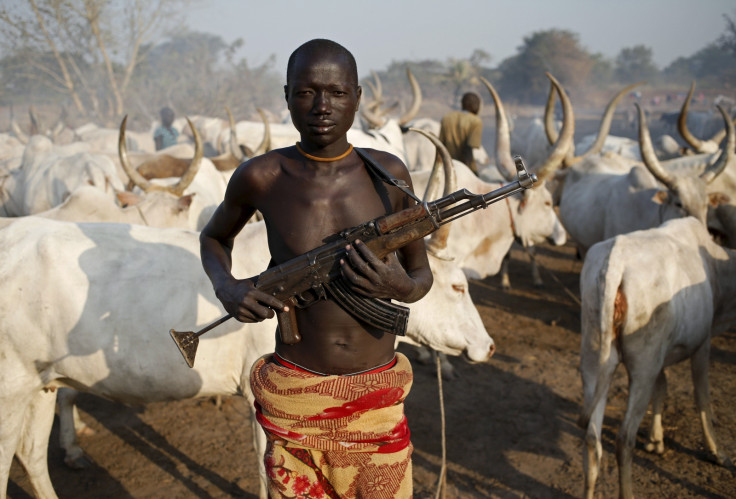Uganda opposes UN arms embargo as South Sudan government fears descent into civil war
Uganda, after sending troops to support government, said arms embargo would weaken army after latest violence.

Uganda has opposed a UN-proposed arms embargo in South Sudan. President Yoweri Museveni claimed that a ban on the sale of arms would weaken the South Sudanese army as it is trying to contain the latest violence amid fears that the country could plunge back into civil war.
"When you impose an [arms] embargo on South Sudan, you destroy the local force on which you need to build a strong integrated army," a statement from Museveni's office read, according to Reuters.
UN Secretary General Ban Ki-moon urged the Security Council to block arms sales to South Sudan after at least 300 people were killed and thousands displaced in and around Juba during clashes between warring factions loyal to President Salva Kiir and vice-president and rebel leader Riek Machar. The government announced a unilateral ceasefire, and both Kiir and Machar ordered government and rebel forces to cease hostilities.
The latest outbreak of violence occurred as the country, the world's newest nation, marked its fifth year of independence from Sudan on 9 July 2016. Machar's return to South Sudan and his reinstatement as vice-president in April had restored hopes for the implementation of a peace process signed in August 2015. However, tensions have been running high since Machar's return.
South Sudan's descent into civil war
South Sudan descended into civil war in 2013 when Kiir, of the Dinka ethnic group, fired his deputy Riek Machar, from the Nuer group, and his cabinet.
August 2015 peace deal: the key points
- Both parties commit to immediate cessation of violence
- Machar to be reinstated as vice-president
- Foreign troops to be withdrawn
- Military personnel in Juba to be replaced by police and guards
- Creation of transitional government that will stay in power for 30 months
- Presidential elections to be held 30 days before end of transitional government mandate
- Probe into abuses committed during conflict
For the full document, click here
Ethnic-related violence then spread, with militia groups carrying out attacks in villages and areas known to be inhabited by either Dinka or Nuer tribes.
More than 10,000 civilians have so far been killed in the conflict, amid allegations of crimes against humanity committed by both sides, including extra-judicial killings, abductions, rape, torture and use of child soldiers.
At least two million people have also been displaced.
Although the warring factions have signed at least seven peace deals, violence has continued, and a January report from the African Union blamed both leaders for the ongoing unrest.
Uganda's role in South Sudan conflict
Uganda has had an important role in supporting Kiir's government since the conflict erupted in 2013. In December of that year, Kampala deployed troops after Kiir warned rebels were fighting to gain control of Juba.
South Sudanese rebels were initially opposed to the presence of Ugandan troops in the country, but in August 2014 they agreed the soldiers could remain until a regional peacekeeping force was deployed.
Uganda was criticised by some for taking sides in the conflict, but Kampala always maintained it had deployed troops to protect South Sudanese civilians and ensure security on all sides of Uganda's borders. Some civilians displaced by the conflict, however, have claimed Ugandan troops were only interested in protecting Kiir. Uganda sent troops back again following the latest resurgence in fighting.
© Copyright IBTimes 2025. All rights reserved.






















